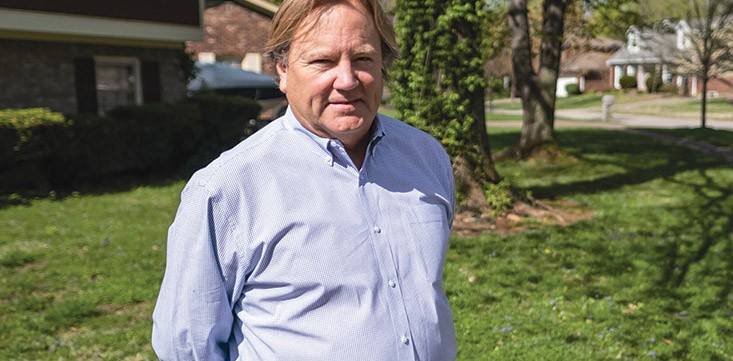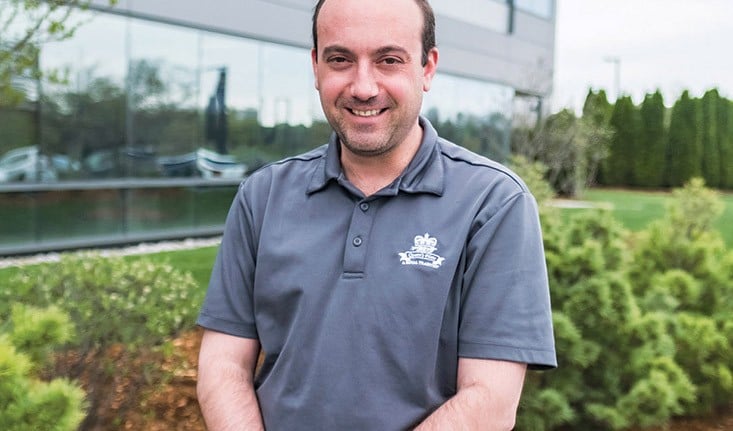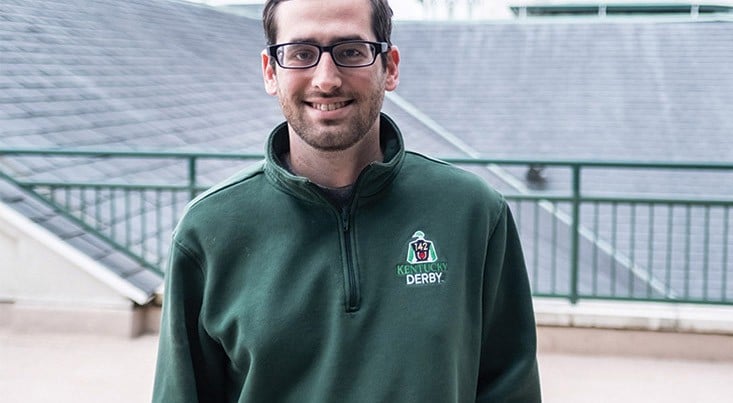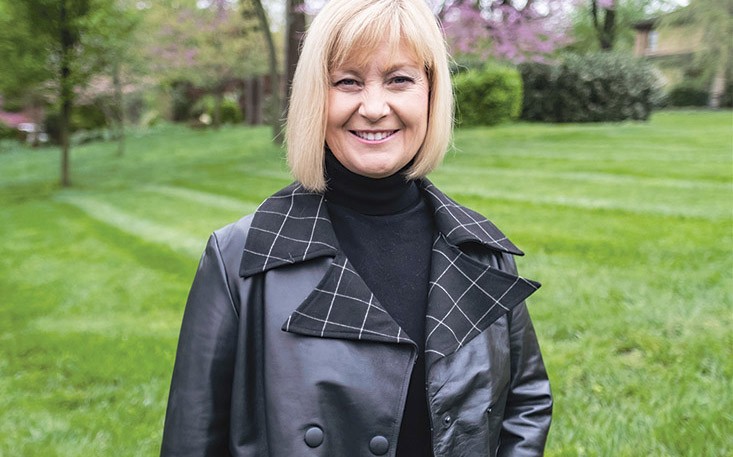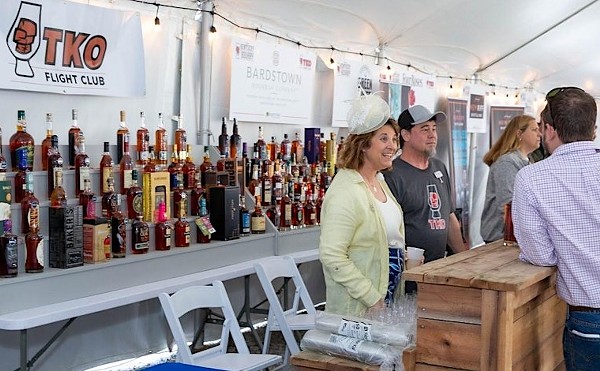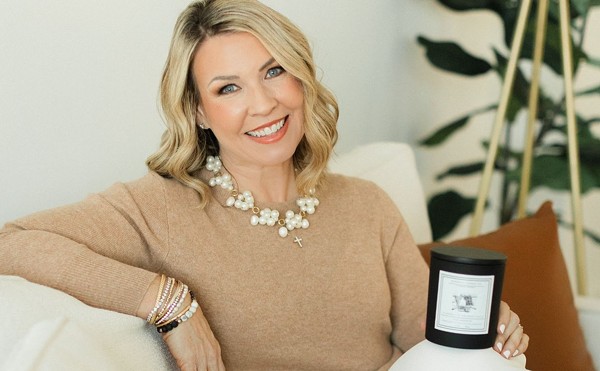This is The Horse!
Professional racing handicappers follow all the 3-year-olds, right up until Derby. Then, they make their picks. Often, they’re right.
“Psst, buddy, I got the horse for you.”
The racetrack tout.
He’s a popular culture character, the guy who hangs out around the track and offers tips in the hopes of moving the odds up or down in his favor.
Or, maybe he’s hoping that a successful tip will lead the bettor to share some of his winnings. (Note: It’s rarely “a horse.” It’s almost always “the horse,” as in sure thing, can’t miss, waddya waiting for?)
He’s a hustler, gangster, con man, gambler. But he’s not a handicapper — except in the most-base street sense of the term.
True professional handicappers do their research, haunt all the tracks (especially in the early-morning workouts before any races begin), accumulate their knowledge and instincts over many years of experience and try to come up with winners.
They’re not at the rail, whispering into your ear.
They’re not driven by odds, profits or ill-gotten gains.
They perform a service that horse followers pay attention to in The Daily Racing Form or the TVG Network, or on the many racing TV/radio stations, publications and websites devoted to the sport. The more followers, the more subscribers, the more advertisers, the more valuable.
But as much as the revenue from their paying followers, they’re driven by a love of racing and of horses, the breezy experience of the early morning on the backside, the challenge of trying to be smarter about the race than anyone else, or just helping everyday bettors find the same romance with horse racing that they’ve always had — and avoid getting their hopes crushed at the track.
They place their own bets, of course, and they can all remember getting their hearts crushed. A lot. Handicapper Marty McGee admits, ruefully, that he’s bet on 45 Derbies and won “eight or ten.” But that’s not even close to representative of their knowledge and handicapping ability. And their hearts aren’t always crushed.
In the days before Derby favorites ruled the race, McGee remembers making about $3,500 on Derby afternoons in 2011, 2012 and 2013. The big payoffs come from more than just choosing the winner. They come from picking exactas and trifectas. In 2013, for example, McGee said he “ended a Pick-4 – a horizontal bet – with Orb,” the winning horse that year.
TV analyst Caton Bredar had a big payoff that year with Orb and huge long shot Golden Soul, who finished second. “I collected $640 on the $100 winning ticket and another $981 on the exacta.”
In 2003, Jude Feld of the Horse Racing Radio Network had a $24,000 weekend, picking Funny Cide in the Derby after winning with Bird Town in the Oaks.
So, clearly, they’re people who horseplayers should be listening to.
We talked to five contemporary handicappers who will be converging on Churchill Downs for the Kentucky Derby next week. For the last several weeks, they’ve been watching Santa Anita, Gulfstream, Oaklawn, Keeneland, wherever the Derby qualifying races have been held, getting to know this year’s field.
They don’t promise they’ll hand you the next Justify. But in the days leading up to the race, they’ll provide valuable insights about the field, choose a favorite or just suggest some astounding long shot — maybe a 50-1 shot like Mine That Bird in 2009 — who’ll send you home from Derby happier and with some substantial change in your pocket.
Jude Feld, Horse Racing Radio Network
When Jude Feld was in third grade, his book report was on “Making Money at the Races.”“The nun wasn’t amused, and she called my mom,” Feld recalled. “And my mother said, ‘I think it’s better that Jude is reading horse racing books than some of the girly magazines that his friends find under their brothers’ beds.’ I was pretty impressed by that.”
And a career got its kick-start that day. A Californian by birth, he had gone to Santa Anita nearly every Saturday afternoon in season with his father and four siblings. The “Money at the Races” book was from his father’s library.
“My dad had owned horses before he got married,” Feld said. “Once he got married, my mom told him, ‘You can have horses, or you can have children.’ So he chose the children.” (His mother sounds like an eminently wise woman.)
After working part-time as a trainer at Santa Anita, Feld moved to Kentucky, covering Ellis Park in Henderson for The Daily Racing Form. “They needed someone to make the charts.” The path eventually led to Keeneland in 2001, where he did the barn notes and marketing. He then started doing radio and podcast analysis for HRRN and a handicapper report on Saturday.
Now 62, Feld also has his own handicapping website, popejude.com. “Pope” as in Francis, Benedict, John Paul — those popes? Yep. “On the radio, it’s cool to have a nickname, and one of the guys on the show began calling me ‘the Pontiff of the Pick-Four.’ It kind of stuck.”
Like all the other handicappers, he’s followed the Derby prep tour. The major stake races, such as the Louisiana Derby, the Florida Derby, the Wood Memorial, the Blue Grass, the Santa Anita, the Lexington and the Arkansas. He’s also followed the Hyacinth Stakes, the Patton Stakes, the Jeff Ruby Steaks. (No kidding! In March at Turfway Park in Florence, Kentucky, outside of Cincinnati.)
He’s still formulating this year’s picks.
What is Feld’s most memorable Derby pick, the one he’s proudest of? He laughed. Because his best Derby pick didn’t win the race.
It was 2005, “and I really liked Closing Argument, trained by Kiaran McLaughlin, who went off at 72-1. He lost in the last 100 yards to Giacomo, himself a 50-1 shot. The trifecta, with the favorite, Afleet Alex, paid $63,000.”
If Closing Argument had won, he’d have been the biggest Derby long shot in nearly 100 years, bigger even than Mine that Bird.
“If he had won, I wouldn’t be talking to you now, I’d be on a beach in Barbados.”
Marty McGee, The Daily Racing Form
As a St. Xavier High School senior, Marty McGee just missed seeing Secretariat win the 1973 Kentucky Derby on his way to the Triple Crown and immortality.“My dad wouldn’t let me attend the Derby until I graduated high school,” said the chief Kentucky correspondent for The Daily Racing Form.
He hasn’t missed one since. Of the 45 he’s attended, though — first as a fan and bettor, later as a writer and handicapper — the 59-year-old admitted his record is spotty. “I’ve won only eight or 10.”
Which only shows how the odds weigh against even “the experts.” McGee scoffed at that word.
“There are no experts,” he said. “Every time I do this, I state very clearly that this is what I think — don’t let me talk you out of what you think.
“Still, the bottom line question everyone asks is, ‘Who’s gonna win?’ I can tell you a whole lot about the race and the horses, until that final question. I don’t really know who’ll win. Who does? But all the stuff leading up to it, I’m pretty good at.”
Like many other handicappers, McGee and his siblings began going out to the track because of his father, a big racing fan. And they all ended up in the sport. His brother, Paul, a successful trainer, was profiled in a 2017 LEO piece. His sister, Amy, is married to California trainer Ron Ellis.
Also, like many other handicappers, McGee’s professional background is in journalism — in his case at UK, where he was sports editor of the Kentucky Kernel. His first job out of college was racing writer and handicapper for The Baltimore Sun, covering the Pimlico and Laurel Park tracks. He joined The Racing Form in 1992.
“Handicapping is largely a communications thing,” he said. “You write or talk, based on your experience and knowledge, to provide useful information to people.”
The crunch for these guys begins in January, leading up to the Derby in May, and then the next two Triple Crown legs.
“There’s a constant calibrating and recalibrating of the top 10, the top 20 horses, in the 3-year-old field, as they race and create their profiles.”
It used to be easier, he said, when they ran 15 times and “the wheat separated from the chaff.” Now, he said, some of them race only three or four times before Derby, making it more unpredictable.
Nonetheless, he pointed out, favorites have won the last six races. The last non-favorite to win was I’ll Have Another, a 12-1 shot in 2012. Most memorable in recent years, of course, was Mine That Bird, the 50-1 shot who paid $103.60 on a winning $2 ticket.
McGee resists picking the favorite, perhaps because his most memorable Derby pick was long shot Gato Del Sol in 1982, when he was a senior in college. “The horse went off at 21-1 and paid $44.”
“I will not pick the favorite,” he asserted. “We went 20 years without having a favorite win. Those are the best Derbies.”
OK, but favorites have won the last six. The only one of those that McGee picked was Orb in 2013 and that was “only because I didn’t think he would be the favorite. His trainer, Shug McGaughey, had never won the Derby before.
“And I won’t be picking this year’s favorite, again. It’s time for an upset.”
Hmmm. Doesn’t that go against every rule of handicapping? Don’t bet on the horse’s name, or the color of their silks? Or automatically refuse to pick a favorite?
“I know, it’s not what I’m supposed to be doing. I admit I’m letting my emotions play.”
But, he said, so much is packed into those two minutes. “Once the gate opens, a lot of the charts and workouts and what you think you knew go out the window. It’s all kind of confusing.”
Tell me about it!
Ed DeRosa, handicapper, Brisnet.com, TwinSpires.com
Ed DeRosa got his first taste of the horses hanging out at his grandfather’s bookmaking operation in Cleveland. It was, to most of the world, a pinball arcade. But gramps was primarily taking bets in the back room, in the days before racing simulcasts and online betting — in fact, even before online anything.Ed and his grandfather also went regularly to Cleveland’s Thistledown Race Track (now JACK Thistledown Racino). That’s where he got introduced to the thrill of the crowd and the smell of the horses. Not that he ever rode a horse or had the least interest in training horses. For him, it was “all about the gambling.”
“It was a thrill to put $2 down on a horse, even though I was still betting on the names and numbers.” He eventually developed a love of the horses, of course. “You can’t do what I do without a deep appreciation of the athletes.”
He also, by the way, became an outstanding pinball player.
He started out studying math in college, because he was good at numbers but moved his major to communications. It was to help boost his career.
He was first the editor and writer of the (now defunct) Thoroughbred Times in Lexington and then was hired by Churchill Downs, which owns interactive businesses like TwinSpires.com, where you can place your bets, and Brisnet.com, where you can get all the research and records to help you make that bet.
The Derby is the race that attracts more interest and action than any other — even people with no interest in racing
“People always ask me, ‘Who’s going to win? Give me the horse.’ That’s not my style. But for the Derby you need to have a strong point-of-view, make the pick everyone will remember. So, I usually structure my Derby bets around one or two strong opinions. The favorites seem to keep winning the races lately, and the payouts are small. But I try to identify a long shot who could finish fourth or better and pay out a big superfecta.”
He shared his thoughts on the racetrack feeds — “part of my job that Churchill pays me for” — and on social media including Twitter, where he has 13,000 or 14,000 followers.
“Having a winner is fun,” said the 38-year-old, “but being right about a long shot — that’s a home run.”
It’s been a while since he had a home run pick in the Derby, and he said he’s never hit the Super. He liked Animal Kingdom, a 20-1 shot who won the 2011 race. But, he said, his last “great” pick was Street Sense, who went off at 9-2 in 2007. Betting the favorite? Yes, he admitted, but he liked the horse so much better than he did the other favorites in that race, Curlin and Scat Daddy. Besides, it won!
“I did what we all do, analyze the charts, watch the workouts, speak to all the trainers. But on Saturday afternoon, that was the one horse I was bullish on. It felt good to land a winner.”
The job doesn’t always feel good though. The pick he wishes he had back was Saarland, in 2002. Owned and bred by Cynthia Phipps and trained by Shug McGaughey, Saarland was over-bet. “Shug is a trainer who always attracts money,” said DeRosa. “People like betting on him — much like [Bob] Baffert today.” Saarland finished tenth.
The fact that DeRosa was 22 at the time and new to the handicapping game doesn’t seem to ease the memory, which he still carries around 17 years later.
“It’s a humbling game,” he said. “We’re wrong so much more often than we’re right.”
Kevin Kerstein, Churchill Downs
Kevin Kerstein, publicity manager at Churchill Downs, is an anomaly in the handicapping community. He didn’t go out to the track with his father. No bookmakers in the immediate family.“I didn’t know much about horse racing until I moved to Louisville in 2008 to attend Bellarmine,” said the Philadelphia native, who was recruited to be on the Knights’ bowling team. “In November, a friend took me to the fall meet at Churchill. Before long, I was regularly skipping classes to go the track.”
In his sophomore year, Kerstein was taken under the wing of Bruno De Julio, the clocker at Keeneland. He was soon going to the track at 4:30 a.m. to clock horses before classes.
“I began to love the horses, but the real draw for me was being able to bet on the races. I was able to pay for a lot of college expenses through my wagering. I was quite the degenerate.”
After graduation, he joined Churchill Downs’ marketing department in 2013. He puts out daily press releases, profiling owners, jockeys and trainers. He also handicaps in the program every race day through his barn notes.
At 29, he doesn’t have the seasoning of some of these other handicappers. But he has the access, built right into his day job.
“I’m here in the morning watching every one of these horses train, every day. Not a lot of handicappers have that kind of proximity.”
He sees the horses grow, add muscle, increase speed and endurance. He also hears the trainers talk about their horses.
“They know the horses the best. An ear-to-ear smile on a trainer’s face will tell you volumes about how a horse is developing.”
Kerstein begins developing his Derby handicap each year starting the previous September, when the 3-year-old season starts. But, of course, the final Derby field doesn’t come together until two weeks before the race. Two weeks to handicap the final field, and only a couple of days to watch the horses on the track. “Most of the horses don’t arrive in Louisville until the week of Derby. I can watch video and chart their past performances, but I can’t always see them all in person until the last few pre-Derby days.”
The charts don’t always preview the real story. Kerstein pointed out that in early April of last year, there was some interest in Justify, but also some questions.
“Everyone knew how talented he was, but he hadn’t raced as a 2-year-old and had only three starts as a 3-year-old. In fact, in early April he didn’t yet have enough points to qualify for the race. Then, he won the Santa Anita Derby, and everyone was pretty much on-board.”
Justify is a Bob Baffert horse. So was American Pharoah, the 2015 Triple Crown winner. There’s always a lot of attention on Baffert-trained horses. He has three entries in the 2019 race, but Game Winner has attracted much of the conversation.
“He was the 2-year-old Horse of the Year and Breeders’ Cup Juvenile winner,” Kerstein said, “but then he didn’t run again for nearly five months, until he ran again in the Rebel Stakes” on March 16 at Oaklawn Park in Hot Springs, Arkansas. Game Winner lost at Oaklawn, as did another highly regarded Baffert horse, Improbable.
Is that loss considered necessary preparation to get the horse into prime condition? Or is it a warning signal? Such are the intricacies of handicapping.
Kerstein said he’ll pick a winner well before the race only because he’s expected to do so in many of his speaking engagements around the city. But he won’t structure his full bet around that winner until right before the race, after he sees the horses in person.
He’s been handicapping for 10 years, now his sixth Derby since he went to work at Churchill Downs. And how has he done? “I haven’t been really good at picking the Derby winner since the points system began in 2013,” he admitted.
He tries not to go with the favorite — a matter of pride, if nothing else — even though favorites have won the last six Derbies. “If you pick the favorite and the favorite wins, people say, ‘Oh, well, you just picked the favorite,’” he said. “And if you pick the favorite and he doesn’t win, you’re marked lousy for a year.”
Of course, it’s more risky to pick a long shot. (That’s why they’re the long shots.) “In 2014, I liked a horse named Uncle Sigh. He was a 30-1 shot, but I liked the way he trained. I thought I was on to something.” Uncle Sigh finished 14th. California Chrome, a 5-2 favorite, won the race.
“If you keep making bad picks, you lose credibility with the bettors out there. So, there’s more pressure to pick the right horse than to bet it with my own money. I feel I let people down. And social media can be cruel.”
Caton Bredar, TV handicapper
Any horseplayer will tell you that lineage is key. TV analyst and reporter Caton Bredar has that kind of bloodline.She was born in the Chicago area in 1965, not far from Arlington Park. Her father was a trainer and farm manager for Rogers Red Top Farm in Libertyville, Illinois, at the time one of the largest breeding and racing farms in the state. Her grandfather was Hall of Fame jockey Ted Atkinson.
Her husband, Doug Bredar, was the racing secretary at Churchill Downs until he became a jockey’s agent 10 years ago. He represents Florent Geroux.
As a young girl, Bredar rode in shows, galloped the horses at the track and got her trainer’s license at 16. She was an English writing major in college and then went to work at Arlington writing publicity and press box notes and some handicapping.
“Some handicapping is math and analysis,” she said, “but most of the successful handicappers are creative and communicative. You have to develop your own way of spinning the raw data. It’s surprisingly cerebral. It’s also basic person-to-person communications. Speak clearly, don’t use insider lingo, explain simply to get your information across.”
Her PR work with the media led to some TV connections. She has worked on-air for TVG Network — the sports station that also offers online horse betting — then ESPN and ABC. When her husband was hired by Churchill Downs, she moved to Louisville and caught on with WAVE-3 as a handicapper. She sought more responsibility and became the station’s familiar weekend anchor.
She also became familiar to TV watchers as the horseback reporter at the big races, a pioneering woman along with Charlsie Cantey and Donna Brothers.
She still handicaps for WAVE during Oaks and Derby, but most of her handicapping these days is for TVG.
Bredar spends half her year in Florida, where she follows the racing at Gulfstream and tunes into most of the other winter tracks. She saw Maximum Security win the Florida Derby in early April. The horse is undefeated. But another horse she liked all winter was Vekoma (trained by George Weaver), who won the Toyota Blue Grass Stakes at Keeneland. She felt it was the horse’s breakout race.
“He’s still immature and unfocused. He’s only raced four times, so he’s still learning. The Derby distance is no problem for him. No telling how he’ll do when he puts it all together.”
Despite trainer Baffert having several strong entries this year — Roadster, Improbable, Game Winner — she’s not ready to declare one of his horses the favorite. In fact, she calls it “an interesting field with no logical favorite — no Justify.”
Besides, she said, Baffert horses get way more attention than do most other trainers’ horses, and that pushes their prices down.
Ironically, it was a Baffert horse that she still regards as her best Derby pick.
“I picked Real Quiet in 1998,” she remembered. “That was before Baffert’s two Triple Crowns, and he wasn’t as well-known. He had two horses in the field, and Real Quiet had the higher odds. I think Baffert thought his other one, Indian Charlie, was the better horse.”
She was watching the Derby workouts from the roof — which is yet another advantage the industry insiders have over the close-your-eyes-and-stick-a-pin-in-the-program general betting public — and was blown away by Real Quiet, who went off that year at about 9-1. Indian Charlie, the morning favorite, finished third.
“Derby is the toughest race to handicap,” Bredar said. “There are a lot of great horses, but generally one thing will stand out to you. That year, that workout sealed the deal for me. My most gratifying Derby.”
Less gratifying was the 2007 Derby, when she went all in for Any Given Saturday, a Todd Pletcher horse who went off at 13-1. The favorite, Street Sense, finished first. Any Given Saturday was eighth.
“In the Derby, anyone who said they haven’t had one of those picks isn’t telling the truth,” Brader insisted. “Most of us haven’t had the winner more than we’ve had the winner. And we’re supposed to be the experts.”
Which is why they say things like, “any horse on any given Saturday” and “that’s why they run the race,” instead of: “This horse? Cannot miss!” •



